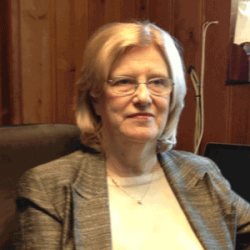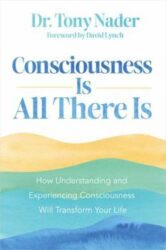A Woman Professional’s Road from Burnout to Success

Joyce Scott is a multiple award-winning, self-made businesswoman, management and sales trainer, and CEO of Superb Speakers and Trainers Bureau. When she was inducted into IBM’s Golden Circle, the keynote speaker for the occasion was Maya Angelou, who said, “Joyce Scott, Joy! Congratulations!” I’ve only met and conversed with Joyce by phone and email, but her infectious joy, energy and enthusiasm for her life and, in fact, everyone’s life, knocked my socks off. I was so pleased that she allowed me to interview her for the TM-women blog.
JH: I understand that by the age of sixteen, you were already aware of the value of focus and clear planning. What were your goals at that time?
JS: I grew up very poor, in pre-civil rights Texas, without benefit of role models or high expectations for my future. I used the resources provided—books from the library that was the only non-segregated public building in the city. I read about great men, business, foreign lands, and black history. At 16 I was elected to a church board of directors so adults around me saw my potential but most of them had little idea of the help I needed and did not respond when I asked. We lived in different worlds of expectation so I accepted help where I could get it. By age 18, I had formed my own career expectations and plans from my research and with the help of a few of my teachers and a librarian. I was a very serious minded person.
Also, by the age of 18, I had an active ulcer and suffered from migraines. Growing up was tough. I consciously chose the path of testing my new civil rights as one of the first black students in a white school with KKK and other detractors persecuting us regularly.
I decided I needed to travel away from Beaumont Texas, my hometown, to places that would offer better options for a black unmarried woman, so I wanted to have the skilled assets that would provide me flexibility to live wherever I decided.
I found a way to pay for my first semester of college but knew I’d have to earn the funds to pay for the remainder of any college studies. I decided to measure my progress using my Freshman Economics class metrics – Return on Investment – my career had to pay me back within the first 3 to 5 years of corporate work. I would need to major in an area of growth, high demand, and low supply to provide me with long-term opportunities.
I needed to work with smarter people than myself—I love to learn from wiser, more enlightened minds. I chose the computer industry in 1969 due to those measurements. I am not a naturally analytical person—I am a Creole lady—but I could achieve and celebrate, somewhat like a New Orleans-styled party person, with family and friends when the work is done. With that combination, I have been able to sustain a great level of happiness through most of my life.
JH: I’ve heard that you achieved recognition for outstanding performance and success at IBM. Please tell me about that.
JS: I learned Transcendental Meditation at 24 years of age which relieved me of the ulcer, migraines, and much of the negative anxiety from my past. As a mother and wife I was focused by then on my ‘real life’.
At 29, after I’d progressed through several corporate and other organizational high-tech careers, a woman named Arlene at IBM pressed me for a resume. I had little thought that I was in any way special in the information technology industry although I never saw anyone else like me being paid to speak professionally. But, IBM was “the industry”—I was intimidated and was told by colleagues, friends, and industry papers that IBM was under a hiring freeze.
However, within a few weeks and several interviews, I was hired. I’d grown up in the projects and ghetto and had not realized that I’d evolved to the levels of an IBM executive. Within a few months I was performing at a high level; within a few years I was a manager with a great track record. I had consistently high performance ratings and often exceeded expectations in assignments I was told were impossible to complete.
I am certain TM was core to my ability to over achieve. Often my managers were unaware that my work exceeded the quota until the formal attainment numbers were released and tracked. I tended to be treated like the last resort— not the one to assign to the “golden” accounts. I love real metrics in complex environments with teams of people for which higher management has low expectations. That all worked for me.
Somehow, the right people were available at the right time. Most of the time, those people most vital to my results were also formerly overlooked. I believe the insight in me to include them on projects or to encourage them in ways they needed was due to the stillness I experienced during my work hours. This might have been the result of my daily TM practice which settles my mind down to a restful state which stays with me throughout the day. There were times I felt I was floating through those impossible tasks and I knew all would work out. I became IBM’s top sales leader in all of North America. I gave a speech at the IBM recognition event, fulfilling a dream I had little to do with forming. I have other dreams now, so I smile a lot.
JH: What benefits have you found in your personal life and career from practice of the Transcendental Meditation technique?
JS: TM enabled me to be clear in thought, mindful, and keenly aware during the years my two sons were growing up. Now my life is filled with real triumphs from these sons I love. They openly express their love for me. So do my daughters-in-law. I am very grateful they all stay in touch and make arrangements to spend time with me. That is a great gift as we are all very busy.
As a teenager, due to an injury, I was told I could never have children—yet I did, easily. I learned TM while pregnant with my second son, who nicknamed himself, at age 3, The Magnificent, and I love to call his older brother The Nubian Prince.
I have the sublime experience of mental snap shots of their subtle sounds, touches, smells, facial expressions, and I believe my conscious awareness during ordinary moments helps me to chronicle family events beyond the photos or videos. I experience an internal full body smile. I recall those moments and can carry and share them forever.
It has been very special to be an at-home role model for my sons and now for my 10 year old grandson who told me he Googled me this week and shared some things about me at his school. He tends to know me as the one who cooks and bakes for him, takes him on fun trips, and massages him after we’ve played too hard running and jumping all day. Family is my wealth.
I know what it takes to manifest a life beyond the ordinary with a career, love, and even a marriage that lasted 41 years. I continue to meditate twice a day and look forward to deepening love and growing my business; I see a bright future at 64 years of age with TM slowing down the aging process in many key ways. TM is my baseline for that future. My life now is about implementing the availability of the Transcendental Meditation program for others so that they will have a strong foundation for their dreams to come true too.
JH: Your firm is now well over a decade old and thriving. You offer your client companies support including such skills as handling pressure, leadership development, and increasing creativity. The published research on TM shows that it accomplishes these skills and more by unfolding the full potential of mental and physical health, including the enlivenment of the CEO (pre-frontal cortex) of the brain. Do you recommend the TM program to your clients?
JS: Yes and I see progress in the readiness level of many who know they need something. When I describe my reliance on TM, many people who know my past record of success and use me as an advisor realize I am revealing my secret to them.
This is a great time.
JH: I see that you have advised the US military and wonder if they have recognized the value of TM for increasing resilience and reducing PTSD?
JS: Yes, I know veterans who are very interested in learning TM and I support their interest by sending details, research findings, and news of scholarships where appropriate. This is one way to say “thank you for your service” and really make a difference to active duty military with—often many—deployments and to veterans. PTSD is now being seen in long-retired military personnel who had no way to describe their issues, felt embarrassed, and suffered in silence too long. I am not at all shy about bringing this topic up and how TM will so effectively help them. Everyone who benefits from TM must share the knowledge of this great tool.
JH: Anything you’d like to add?
I would love to identify a way to work with the TM organization to bridge the practical applications I’ve found and shared informally for so long.
The future is so bright with TM—we will all need thick shades!
About the Author
Janet Hoffman is the executive director of TM for Women Professionals, a division of TM for Women in the USA





